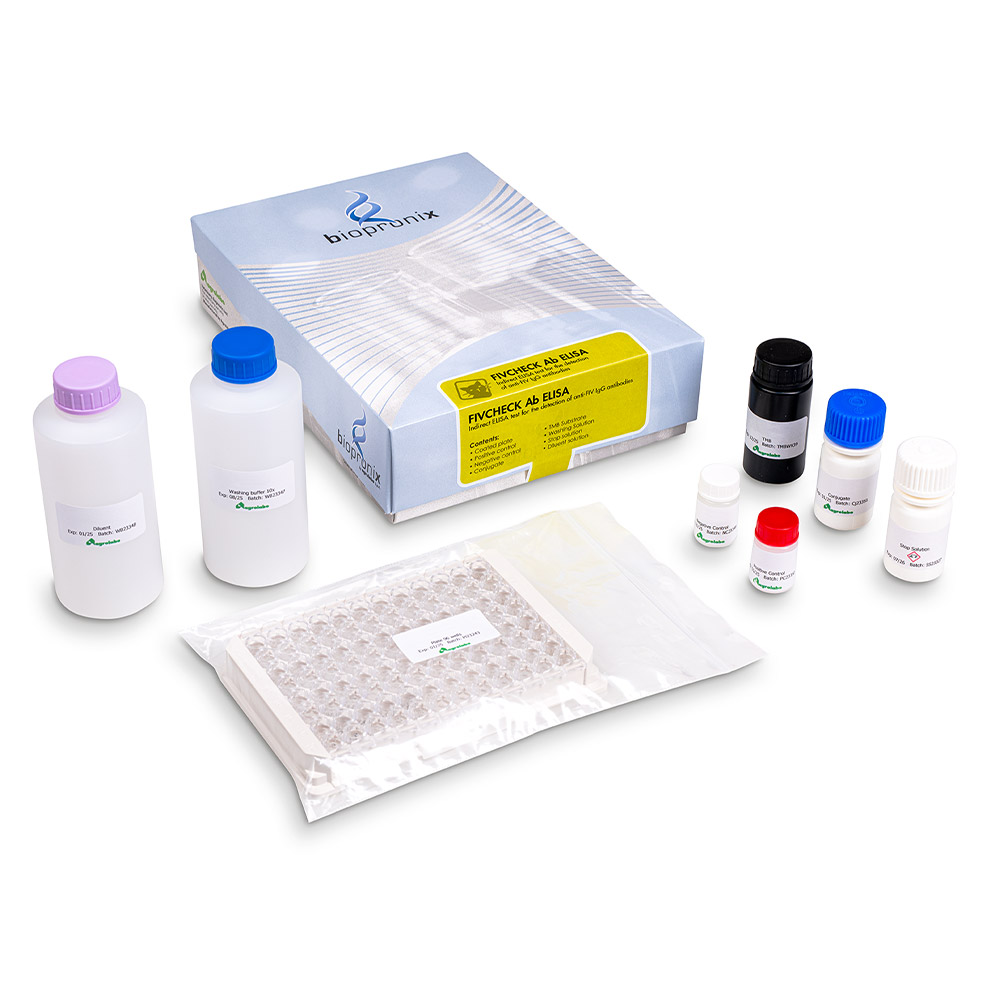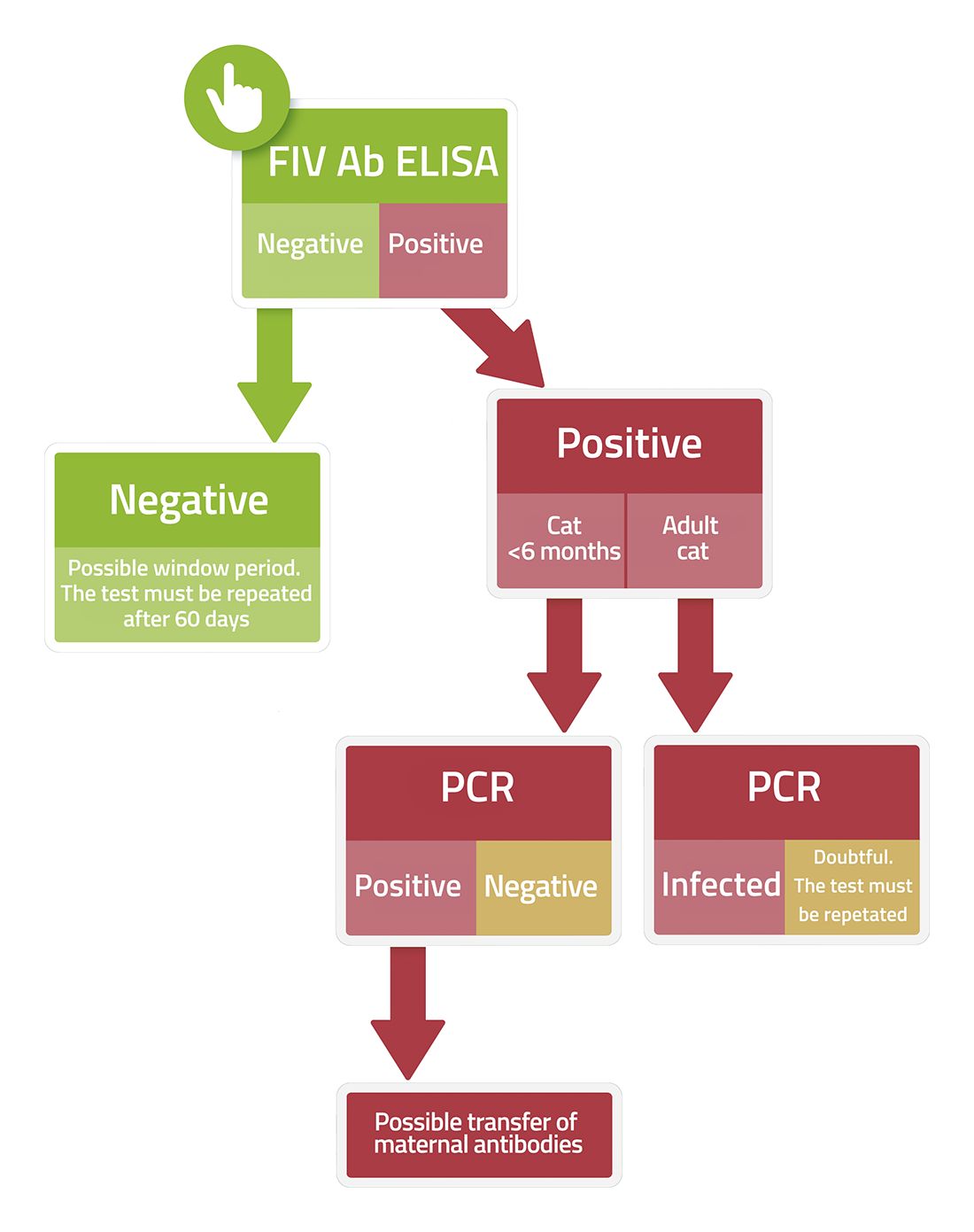FIVCHECK Ab ELISA
ELISA kit for the detection of antibodies to Feline Immunodeficiency Virus
This kit is based on the indirect ELISA immunoassay technique for the detection of anti-FIV antibodies in cat serum or plasma samples.
The feline immunodeficiency virus (FIV) is a Lentivirus of the Retroviridae family isolated in cats and shows characteristics similar to those of human HIV. Transmission occurs mainly through bite or scratch wounds of infected cats while transmission through saliva, as well as transplacental and venereal transmission are considered uncommon.
Initially, the virus replicates affecting T-helper lymphocytes (CD4 +), then T-cytotoxic (CD8 +) lymphocytes, macrophages and B lymphocytes inducing a transient fever, lymphadenopathy and neutropenia followed by activation of the immune response with a decrease of the circulating virus. This acute phase is followed by an asymptomatic latency phase that can last for months or years during which, however, the T-helper lymphocytes progressively decrease, compromising the immune system. After months or years, a recrudescence of infection may arise with the occurrence of the immunodeficiency syndrome, responsible for secondary infections, neurological disorders, neoplasms.
The diagnosis of FIV is based on the antibodies detection. The antibodies are produced about 3-4 weeks after infection and last for the entire life of the animal. Kittens under 6 months of age can give false positive results when they absorb maternal antibodies (from potive mothers), then antibodies are eliminated and after four months they return to be negative.

